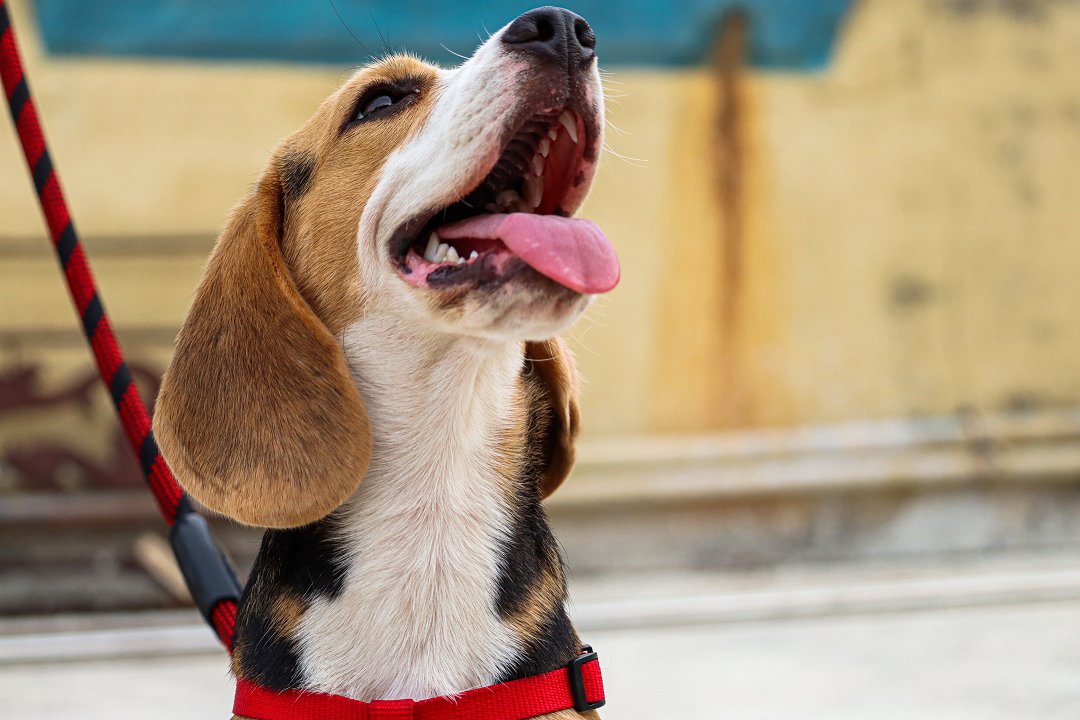Table of Contents
- 1 Introduction: Understanding the Curious Behavior of Beagles: Why Do They Eat Poop?
- 2 Unveiling the Mystery: Exploring the Reasons Behind a Beagle’s Fascination with Feces
- 3 From Puzzlement to Prevention: How to Stop Your Beagle from Eating Poop
- 4 FAQs About: why is my beagle eating poop
- 4.1 Why does my beagle eat poop?
- 4.2 How can I prevent my beagle from eating poop?
- 4.3 Can training help stop my beagle from eating poop?
- 4.4 Are there any health issues associated with beagles eating poop?
- 4.5 Is eating poop a common behavior in beagles?
- 4.6 What should I do if my beagle continues to eat poop despite prevention efforts?
Introduction: Understanding the Curious Behavior of Beagles: Why Do They Eat Poop?
Have you ever caught your beagle munching on their own or another dog’s poop? It’s a perplexing and somewhat disgusting behavior that many beagle owners have witnessed. But why is your beagle eating poop? In this article, we will delve into the reasons behind this peculiar fascination with feces and explore the mysteries of a beagle’s behavior. From their instinctual scavenging tendencies to potential health issues, we will uncover the various factors that contribute to coprophagia, the technical term for poop-eating in dogs. So, let’s uncover the truth behind this puzzling behavior and find out how to prevent it.
Unveiling the Mystery: Exploring the Reasons Behind a Beagle’s Fascination with Feces
Have you ever wondered why your beagle has a peculiar habit of eating poop? This behavior, known as coprophagia, can be quite puzzling for pet owners. However, there are several reasons why beagles and other dogs engage in this behavior. Let’s delve into the mystery and uncover the possible explanations behind a beagle’s fascination with feces.
1. Instinctual Behavior
Beagles are descendants of hunting dogs and have a strong instinct for scavenging. In the wild, canines would eat the feces of other animals as a way to gather information about their prey. This behavior is deeply ingrained in their DNA, and even though beagles are domesticated pets now, their instinctual behavior can still drive them to eat feces.
2. Dietary Deficiency
One possible reason for a beagle’s coprophagia is a dietary deficiency. If your beagle’s diet lacks certain nutrients, they may be compelled to seek them out in feces. For example, if your beagle is not getting enough fiber or enzymes from their regular meals, they might resort to eating poop to fulfill their nutritional needs.
3. Health Issues
Sometimes, coprophagia can be a sign of underlying health issues in beagles. Digestive problems, such as malabsorption or an enzyme deficiency, can lead to an increased interest in feces. If you suspect that your beagle’s coprophagia is related to a health issue, it is important to consult with a veterinarian to rule out any potential medical conditions.
4. Training and Reinforcement
In some cases, coprophagia can be learned behavior. If a beagle has been scolded or punished for eliminating inappropriately, they may start eating their feces to hide the evidence and avoid punishment. This behavior can be reinforced if the owner inadvertently rewards the beagle’s coprophagia by giving attention or treats when they engage in this behavior.
Understanding the reasons behind a beagle’s fascination with feces is the first step towards addressing and preventing this behavior. In the next section, we will explore effective strategies and techniques to stop your beagle from eating poop. By implementing proper training, addressing dietary deficiencies, and ensuring your beagle’s overall health, you can help your furry friend overcome their coprophagia habit and lead a healthier, happier life.
From Puzzlement to Prevention: How to Stop Your Beagle from Eating Poop
If you are a beagle owner who has been left puzzled by your furry friend’s tendency to eat poop, commonly known as coprophagia, fret not! This behavior, although unpleasant, is not uncommon in dogs, including beagles. Understanding the reasons behind this behavior and taking appropriate steps can help you prevent it. Let’s delve into some effective strategies:
1. Ensure a Nutritious Diet
A beagle’s dietary deficiency can sometimes trigger coprophagia. Ensure that your pet is receiving a well-balanced diet that meets their nutritional needs. Consult your veterinarian to determine if any supplements are necessary to address any potential deficiencies.
2. Keep the Environment Clean
Beagles are notorious scavengers, and their instinctual behavior may lead them to explore and consume feces. Maintaining a clean environment by promptly removing any stools can help discourage this behavior. Regularly clean your backyard and ensure that your beagle has limited access to areas where they may encounter feces.
3. Train Your Beagle
Training plays a crucial role in curbing coprophagia. Teach your beagle basic commands like “leave it” or “drop it” to discourage them from approaching or ingesting feces. Reward them with treats and praise when they obey these commands successfully.
4. Provide Mental and Physical Stimulation
Boredom can contribute to a beagle’s inclination to engage in coprophagia. Keep your pet mentally and physically stimulated through regular exercise, interactive toys, and engaging activities. This will help divert their attention away from feces.
5. Address Health Issues
Certain health issues, such as malabsorption problems or parasites, can lead to coprophagia. If you notice persistent or excessive poop-eating behavior, consult your veterinarian to rule out any underlying health conditions and seek appropriate treatment if necessary.
6. Use Deterrents
There are various commercial products available that can be sprayed on feces to make them unappetizing for dogs. These deterrents often have a strong odor or taste that discourages your beagle from consuming feces. However, it is essential to consult your veterinarian before using any such products to ensure they are safe for your pet.
By implementing these strategies, you can effectively address and prevent coprophagia in your beagle. Remember, consistency, patience, and positive reinforcement are key when training your pet. With time and effort, you can help your beagle overcome this curious behavior and enjoy a healthier, more hygienic life.
FAQs About: why is my beagle eating poop
Why does my beagle eat poop?
Beagles, like many other dogs, may eat poop due to instinctual behaviors rooted in their scavenging nature. It can also be a sign of dietary deficiency or underlying health issues.
How can I prevent my beagle from eating poop?
To prevent your beagle from eating poop, ensure they have a balanced and nutritious diet. Keep their living area clean and promptly remove any feces. Supervise them during walks and redirect their attention if they show interest in stool.
Can training help stop my beagle from eating poop?
Yes, training can be effective in stopping your beagle from eating poop. Teach them the “leave it” or “drop it” command and reward them with treats or praise when they obey. Consistency and positive reinforcement are key.
Are there any health issues associated with beagles eating poop?
Yes, eating poop can expose beagles to various health risks. They can contract parasites, bacteria, or viruses present in the feces. It’s important to consult with a veterinarian if you notice any changes in your beagle’s behavior or health.
Is eating poop a common behavior in beagles?
Yes, eating poop, also known as coprophagia, is a relatively common behavior in beagles and other dogs. However, not all beagles engage in this behavior, and it can vary from dog to dog.
What should I do if my beagle continues to eat poop despite prevention efforts?
If your beagle continues to eat poop despite your efforts, consult with a veterinarian. They can evaluate your dog’s health and behavior to determine if there are any underlying issues contributing to this behavior.






Leave a Reply